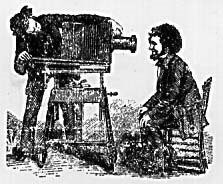Sardar and Van Loon discuss the role of colonial intellectuals within British cultural studies in the 1980s, and how the influx of colonial perspective “challenged the ‘Britishness’ of the New Left” and ultimately expanded the realm of cultural studies (p. 40). Sardar and Van Loon seem to imply that until then, British cultural studies were preoccupied “with the ‘style’ and behavior of young working-class men” and didn’t really examine the many diverse identities that make up British culture (p.41). With these changes it could begin to investigate the marginalized individuals within British society, and understand more fully different cultural identities across Britain's history.
Two key terms which seem to accompany this shift: hegemony and the subject.
The Impact of European Theory, introduces the idea of ‘the subject’ in its first paragraph;
“Such theoretical formulations, inherently interdisciplinary in their foundations and implications…provide models for understanding the formation/construction of agency for the human subject, the implicit and explicit drives that motivate or hinder such an agency in a socio-cultural arena, and explanations of sign systems (ranging from language to myths) which produce meanings...the subject is constructed in and between layers of language and cultural experiences, encompassing socio-economic, psychological, historical, political, biological, ethnic, and religious realities” (Munns and Rajan, p. 82).
This is somewhat dense, and I’ve cut some things out, but for the most part it suggests the unique position of different individuals within the many overlying social structures. The word 'subject' also has many meanings in different contexts that most of us have probably heard somewhere.
Wikipedia's page on 'the subject' (this page is pretty ambiguous as well)
‘Hegemony’ is not in New Keywords, but can be found [again] on good ‘ole Wikipedia
Also, reading Althusser's theory about ideology helped me place these definitions a little better.

No comments:
Post a Comment